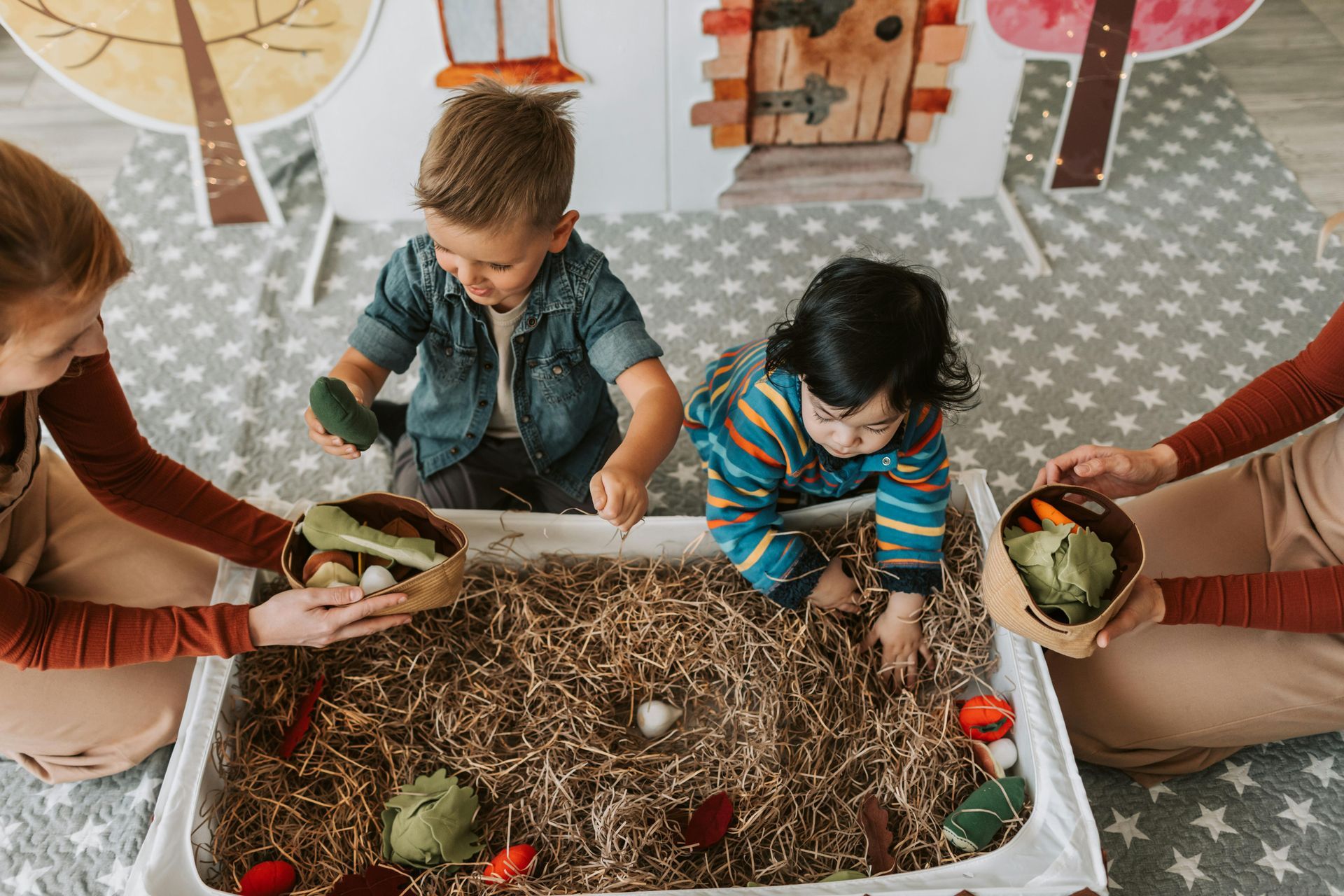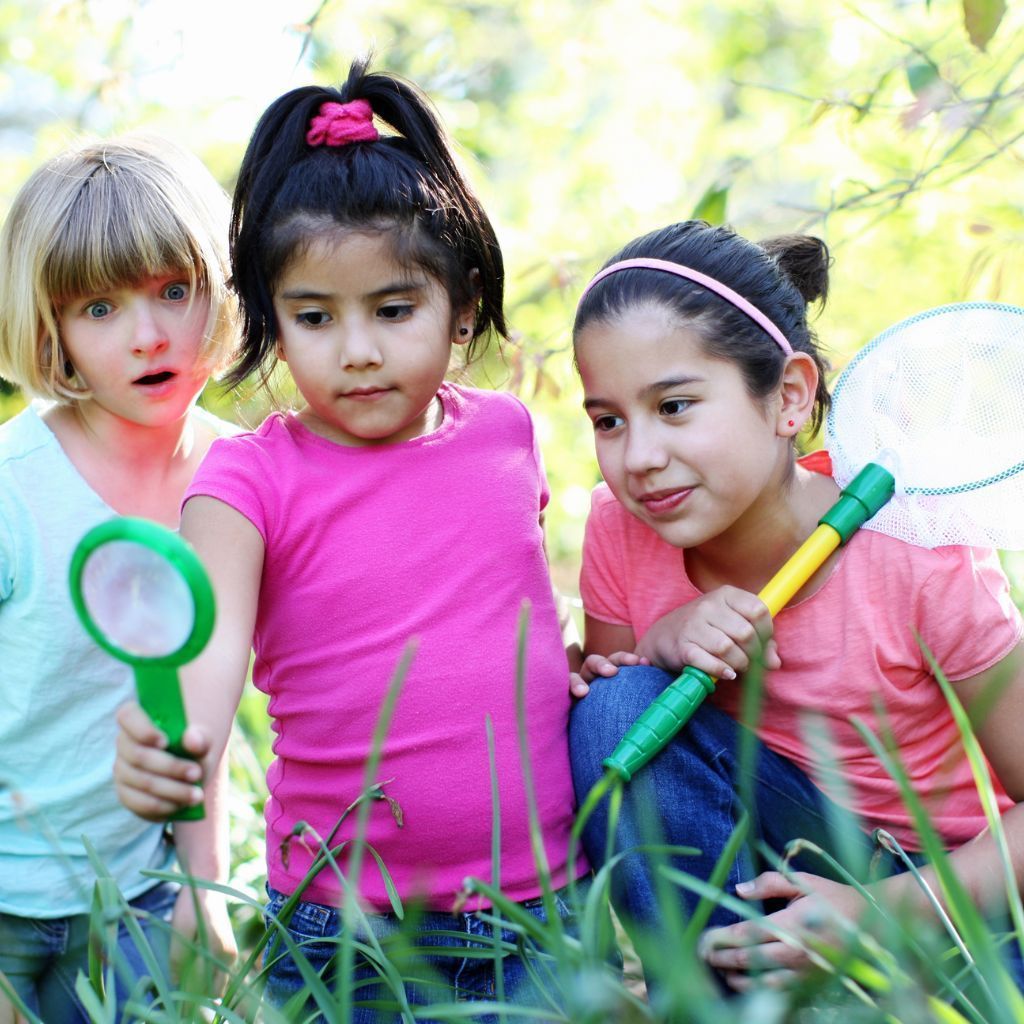Fostering Curiosity in Young Minds: Why Exploring the World is Key to Early Childhood Learning

Curiosity is the spark that ignites a child’s passion for learning. At Playtime Academy, we understand that fostering curiosity in young minds is crucial to encouraging lifelong learning and exploration. Through play, inquiry, and hands-on experiences, children can develop a love for discovery that shapes how they engage with the world around them. In this post, we’ll dive into the importance of curiosity in early childhood development and share how parents and educators can nurture it effectively.
The Importance of Curiosity in Early Childhood
Curiosity is the foundation of critical thinking, problem-solving, and creativity. It motivates children to ask questions, seek out new experiences, and engage with their environment in meaningful ways. Curiosity leads children to explore, experiment, and challenge their assumptions, which fosters deeper learning.
Here’s why curiosity is vital for early childhood development:
1. Encourages Independent Learning
Curious children are self-driven learners. They ask questions like "Why?" and "How?" and seek answers through exploration, helping them develop independence and confidence in their ability to solve problems. When children explore their environment, whether it's through hands-on activities or discovery-based learning, they build a sense of ownership over their learning.
2. Sparks Creativity and Imagination
Curiosity drives creativity. When children are curious, they feel empowered to create, innovate, and imagine new possibilities. Whether it’s drawing pictures of faraway lands or inventing new games, curiosity fuels the imagination, allowing children to stretch their creativity in fun and engaging ways.
3. Builds Problem-Solving Skills
Exploring the world allows children to encounter challenges. Whether they’re trying to figure out how to stack a tower of blocks or how to make a homemade volcano, curiosity leads children to ask questions and find solutions. This process strengthens their problem-solving abilities and helps them develop resilience when faced with obstacles.
4. Enhances Social Interaction
Curiosity fosters social engagement. As children explore new ideas, environments, and activities, they often do so with others, which encourages communication and collaboration. Curious children ask questions, share their discoveries, and invite others to join them in their learning adventures. This fosters meaningful connections and supports social development.
How Playtime Academy Fosters Curiosity in Children
At Playtime Academy, we believe that curiosity is best nurtured through active, hands-on learning experiences. Our approach to fostering curiosity involves creating an environment where children are encouraged to ask questions, explore, and try new things.
Here’s how we integrate curiosity-driven activities into our curriculum:
1. Exploration Stations
We set up “exploration stations” that allow children to interact with different materials and environments. These stations may include sensory bins, science experiments, or art supplies. Each station is designed to spark curiosity and encourage children to ask questions and experiment with new ideas.
2. Nature Walks and Outdoor Learning
Outdoor exploration is a key part of our approach to fostering curiosity. Whether it’s observing insects, collecting leaves, or examining different textures, nature provides endless opportunities for learning. Our nature walks and outdoor playtime help children develop a sense of wonder about the world around them.
3. Interactive Storytelling and Questioning
We use storytelling as a tool to engage children’s curiosity. Through interactive storytelling, we ask questions, prompt discussions, and encourage children to think critically about the story. This helps children connect emotionally and intellectually with the material while stimulating their natural curiosity.
4. Hands-On Activities and Experiments
Whether it’s making a science discovery, conducting a simple experiment, or engaging in an art project, hands-on activities provide children with tangible experiences that fuel their curiosity. We create opportunities for children to experiment, ask questions, and explore new concepts through fun and interactive activities.
5. Encouraging Inquiry-Based Learning
At
Playtime Academy, we embrace an inquiry-based learning approach. Children are encouraged to ask questions and explore answers on their own. For example, if a child is curious about how a plant grows, we may start a planting activity and let them observe and ask questions as they watch the plant develop.
How Parents Can Foster Curiosity at Home
Parents play a crucial role in fostering curiosity outside of the classroom. Here are a few tips on how parents can nurture their child’s natural curiosity at home:
1. Encourage Open-Ended Questions
When children ask questions, don’t just provide the answer—encourage them to think critically and explore the topic further. Ask open-ended questions like “What do you think happens next?” or “How do you think we could find out?” This helps children develop problem-solving skills and a deeper understanding of the world.
2. Provide a Variety of Learning Opportunities
Expose your child to a variety of activities that stimulate their curiosity. This could include art projects, cooking, puzzles, or outdoor exploration. Providing a diverse range of experiences helps children develop a well-rounded sense of curiosity and creativity.
3. Create a Learning-Friendly Environment
Make your home a place where learning and exploration are valued. Provide books, art supplies, science kits, and other materials that encourage children to ask questions and explore new concepts. A well-equipped environment fosters curiosity and invites children to dive deeper into learning.
4. Embrace Messy Play
Sometimes, curiosity leads to mess! Encourage your child to explore freely, even if it gets a little messy. Whether it’s painting, mud pies, or water play, messy play allows children to engage in sensory exploration and discover new textures and sensations, which fuels their natural curiosity.
5. Be a Curious Role Model
Children often imitate the behaviors of their parents. Show curiosity in your daily life by asking questions, exploring new things, and expressing interest in the world around you. When children see adults engaging in learning, they are more likely to adopt the same mindset.
At Playtime Academy, we understand the importance of play in building lifelong social skills, which complements our efforts in empowering children through personalized learning experiences to support early childhood growth.
Conclusion
Curiosity is a vital component of early childhood development. It encourages children to explore, ask questions, solve problems, and think creatively. At Playtime Academy, we understand that fostering curiosity is one of the most effective ways to build a love for learning that will last a lifetime. By providing children with the opportunity to explore, experiment, and discover, we empower them to become lifelong learners and critical thinkers. Through play, children can unlock their full potential and develop the skills they need to succeed in school and beyond.









